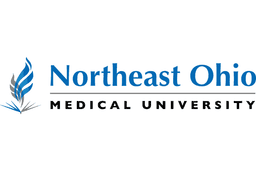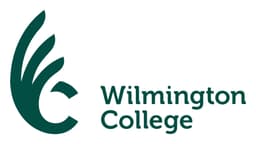Higher Education Jobs in Ohio
Ohio offers vibrant academic opportunities, with leading institutions driving innovation in fields like engineering, medicine, and education. Known as a hub for higher education in the Midwest, Ohio is home to over 100 colleges and universities, attracting academics and researchers from across the globe. Whether you're seeking professor positions in Ohio or exploring academic careers in Ohio, this state provides a dynamic environment for growth. Discover professor ratings through Rate My Professor on AcademicJobs.com to make informed career decisions.
With a strong emphasis on research and development, Ohio's academic institutions contribute significantly to the state's economy and cultural landscape. Explore careers and resources tailored to higher education jobs in Ohio at AcademicJobs.com, your go-to platform for faculty jobs in Ohio and beyond.
Ohio's commitment to education is evident in its investment in public and private institutions, fostering an environment where academic opportunities in Ohio thrive. From tenure-track roles to research positions, the state offers diverse pathways for those passionate about shaping the future of education.
Top Universities in Ohio:
Faculty Job Opportunities in Ohio
Pursue rewarding careers in Ohio with roles like Assistant Professor, Lecturer, and Research Fellow. Ohio's academic job market is robust, with high demand for faculty in STEM fields, humanities, and health sciences. Salaries for faculty positions in Ohio typically range from $60,000 to $120,000 annually, depending on the role, institution, and experience level. Public universities and research institutions often offer competitive benefits, including tenure-track opportunities and research funding.
Ohio's higher education sector is supported by a strong network of public and private institutions, creating a diverse array of professor positions in Ohio. Whether you're interested in teaching at a large research university or a smaller liberal arts college, Ohio has opportunities to match your career goals. For the latest openings in academic careers in Ohio, explore job listings at AcademicJobs.com, filtered specifically for Ohio.
Notable programs in Ohio include engineering at Ohio State University and medical research at Case Western Reserve University, both of which frequently seek talented faculty. Additionally, community colleges across the state offer lecturer roles in Ohio for those passionate about teaching and community engagement. With a growing emphasis on interdisciplinary studies, research jobs in Ohio are also on the rise, particularly in areas like sustainability and technology.
Why Pursue a Career in Ohio Academia
Academic careers in Ohio offer unique advantages, including access to cutting-edge research opportunities and a supportive community of scholars. Ohio is known for its strong ties to industries like manufacturing, healthcare, and technology, providing academics with opportunities for impactful research collaborations. The state's central location in the Midwest also makes it a convenient hub for networking with professionals across the country.
Beyond professional growth, Ohio offers a high quality of life with affordable living costs compared to coastal states, making it an attractive destination for faculty and their families. Cultural landmarks like the Rock and Roll Hall of Fame in Cleveland and the vibrant arts scene in Columbus add to the appeal of building a career here. Explore opportunities in Ohio academia at AcademicJobs.com.
Salary Guide for Faculty in Ohio
Faculty salaries in Ohio vary by role, institution, and experience. According to recent data, Assistant Professors in Ohio earn between $60,000 and $85,000 annually, while Associate Professors range from $75,000 to $100,000. Full Professors at top-tier institutions can earn upwards of $120,000 per year, with additional compensation for administrative roles like Department Chairs or Deans. Public universities often provide structured pay scales with benefits like retirement plans and health insurance.
Factors affecting salaries include the type of institution—research universities typically pay more than community colleges—and the cost of living in specific areas. For instance, faculty in urban centers like Columbus or Cincinnati may receive higher pay to offset living expenses. Additionally, fields like medicine, engineering, and business often command higher salaries due to demand. For detailed insights into faculty salaries in Ohio, check resources at AcademicJobs.com 📊.
Ohio's academic institutions also offer opportunities for supplemental income through grants, consulting, and summer teaching. Compared to national averages, Ohio faculty salaries are competitive, especially considering the state's lower cost of living. Whether you're starting as a Lecturer or aiming for a tenured position, understanding salary trends in Ohio academia is crucial for career planning. Explore more salary data and job openings at AcademicJobs.com 📍.
Weather and Climate in Ohio
Ohio experiences a humid continental climate with four distinct seasons, impacting academic life and daily routines. Summers are warm, with average temperatures ranging from 70°F to 85°F, ideal for outdoor campus events and research fieldwork. Winters can be cold, with averages between 20°F and 35°F, often bringing snowfall, especially in northern areas like Cleveland. This can affect commuting to campus, so academics should plan for winter gear and potential delays.
Spring and fall offer mild weather, with temperatures between 45°F and 65°F, making these seasons perfect for campus visits or exploring Ohio's natural beauty, such as the Hocking Hills. However, Ohio is prone to severe weather, including thunderstorms and occasional tornadoes in spring and summer, so staying informed about weather alerts is essential. For newcomers, the best times to relocate or visit campuses are late spring (May) or early fall (September) when the weather is most pleasant ☀️.
The varied climate also influences academic schedules, with many universities offering winter breaks to accommodate harsh weather. Faculty and students often appreciate Ohio's seasonal diversity, as it provides a balance of indoor and outdoor activities throughout the year. Whether you're attending conferences or conducting field research, understanding Ohio's weather patterns can help you adapt to life in academia here. Check local forecasts and campus resources to stay prepared for seasonal changes.
Work Environments in Ohio Universities
Ohio's universities are known for fostering collaborative and inclusive work environments, with a strong emphasis on research and teaching excellence. Campus cultures vary by institution—large research universities like Ohio State University offer dynamic, fast-paced settings with extensive facilities, while smaller colleges prioritize close-knit communities and personalized mentorship. Many institutions have embraced hybrid work options, allowing faculty to balance teaching, research, and administrative duties.
Diversity initiatives are a key focus, with universities promoting inclusive hiring practices and support for underrepresented groups. Employee satisfaction surveys often highlight Ohio's academic institutions for their commitment to work-life balance, offering benefits like sabbaticals and professional development funding. Faculty also benefit from proximity to urban amenities in cities like Columbus and Cincinnati, as well as access to natural landscapes for recreation and relaxation.
Ohio universities frequently collaborate with local industries, providing unique opportunities for applied research and community engagement. Whether you're in a tenure-track role or a lecturer position, the state's academic work environments are designed to support career growth. Learn more about specific campus cultures by connecting with peers through Rate My Professor on AcademicJobs.com 💼.
Lifestyle and Cost of Living in Ohio
Ohio offers an affordable and diverse lifestyle for academics, with a cost of living index below the national average at approximately 94 (national average is 100). Housing is particularly reasonable, with average rents for a one-bedroom apartment ranging from $700 to $1,000 per month in urban areas like Columbus, and even lower in smaller towns. Homeownership is also accessible, with median home prices around $200,000, compared to the national median of $350,000.
Transportation options include public transit in major cities, though many residents rely on personal vehicles due to the state's spread-out geography. Cultural attractions abound, from the Cincinnati Art Museum to Cleveland's theater district, offering rich experiences for faculty and students. Dining scenes are vibrant, with a mix of local diners and international cuisine, while recreational activities like hiking in Cuyahoga Valley National Park provide outdoor escapes.
For academics, Ohio's lifestyle balances professional opportunities with personal fulfillment. The state's lower cost of living allows faculty to enjoy a comfortable standard of life, even on starting salaries. Groceries and utilities are also below national averages, with monthly expenses typically around $300–$400 for a single person. Whether you're drawn to urban energy or rural charm, Ohio offers a welcoming environment for building a career in academia.
Rate My Professor: Top Educators in Ohio
Find and rate top educators in Ohio with Rate My Professor on AcademicJobs.com. This platform helps students and academics identify exceptional professors based on real student feedback, aiding in course selection and career guidance. Ohio's academic community benefits from transparent ratings that highlight teaching excellence across various disciplines.
Career Progression in Ohio Academia
Career paths in Ohio academia typically follow a progression from Lecturer or Assistant Professor to Associate Professor and Full Professor, with opportunities for tenure at many institutions. Research funding is widely available, especially in fields like engineering and health sciences, supported by state and federal grants. Salaries increase with rank, often supplemented by opportunities for consulting or administrative roles.
Ohio's academic strengths include partnerships with local industries, offering unique avenues for applied research and career advancement. Faculty can also access professional development through conferences and workshops hosted by state universities. Find tailored opportunities and career advice at AcademicJobs.com.
Research and Trends in Ohio Higher Education
Ohio is at the forefront of research in areas like biomedical engineering, sustainable energy, and data science. Universities collaborate with government agencies and private sectors to address regional challenges, such as healthcare disparities and environmental sustainability. Funding opportunities are robust, with institutions securing millions annually for interdisciplinary projects.
Current trends include a growing focus on online and hybrid learning, as well as initiatives to increase diversity in STEM fields. Ohio's academic community is also investing in artificial intelligence and machine learning, positioning the state as a leader in tech innovation. Explore research jobs in Ohio at AcademicJobs.com.
Resources for Ohio Academics
- Ohio Higher Education Network: Connect with peers and access professional development opportunities 🎓.
- Academic Journals in Education and STEM: Stay updated on the latest research trends 📚.
- Annual Ohio Education Conference: Network and learn at this state-wide event, with registration costs averaging $200–$300 💼.
- State-Funded Grants: Explore funding for research and teaching initiatives through Ohio's Department of Higher Education 📊.
Student Perspectives in Ohio Higher Education
Students in Ohio can explore diverse programs in engineering, arts, and sciences at top-tier universities. Career outcomes are strong, with many graduates securing positions in local industries or pursuing advanced degrees. Selecting the right professors is key—visit Rate My Professor on AcademicJobs.com to find top educators. Ohio's seasonal weather and affordable lifestyle also make it an appealing choice for students balancing academics and personal life.























































































.png&w=256&q=75)







